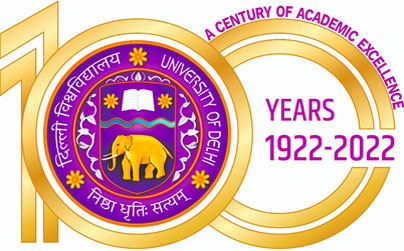VAC 1: DIGITAL EMPOWERMENT
Credits
2
Lecture
0
Tutorial
0
Practical/Practice
2
Eligibility criteria
Pass in Class 12th
Pre-requisite of the course
NIL
The Learning Objectives of this course are as follows:
- Understand the digital world and need for digital empowerment
- Create awareness about Digital India.
- Explore, communicate and collaborate in cyberspace.
- Building awareness on cyber safety and security.
The Learning Outcomes of this course are as follows:
- Use ICT and digital services in daily life.
- Develop skills to communicate and collaborate in cyberspace using social platforms, teaching/learning tools.
- Understand the significance of security and privacy in the digital world.
- Evaluate ethical issues in the cyber world
UNIT- I Digital inclusion and Digital Empowerment (20 Weeks)
- Needs and challenges
- Vision of Digital India: DigiLocker, E-Hospitals, e-Pathshala, BHIM, e-Kranti (Electronic Delivery of Services), e-Health Campaigns
- Public utility portals of Govt. of India such as RTI, Health, Finance, Income Tax filing, Education
UNIT- II Communication and Collahoration in the Cyberspace (16 Weeks)
- Electronic Communication: electronic mail, biogs, social media
- Collaborative Digital platforms
- Tools/platforms for online learning
- Collaboration using file sharing, messaging, video conferencing
UNIT- Ill Towards Safe and Secure Cyberspace (16 Weeks)
- Online security and privacy
- Threats in the digital world: Data breach and Cyber Attacks
- Blockchain Technology
- Security Initiatives by the Govt of India
UNIT- IV Ethical Issues in Digital World (8 Weeks)
- Netiquettes
- Ethics in digital communication
- Ethics in Cyberspace
Note : Concepts are to be taken up during the practical/practice hours.
Practical/Practice Component (30 sessions of 2 hours each - 60 hours)
The course should be conducted in an interactive mode through demonstration, using appropriate tools.
- Conduct workshops one-services initiated under Digital India.
- Spread digital literacy/awareness amongst the vulnerable groups and marginalised sections of the society like street vendors, domestic help, security guards, senior citizens.
- Students will take up team activities/ projects exploring digital services in the areas such as education, health, planning, farming, security, cyber security, financial inclusion, and justice, e-Kranti.
- Any other Practical/Practice as decided from time to time.
- Rodney Jones and Christoph Hafner. "Understanding digital literacies: A practical
- Introduction". Routledge Books, 2nd edition, 2021.
- https://www.digitalindia.gov.in
- https://www.digilocker.gov.in
- https://www.cybercrime.gov.in
- https://www.cybersafeindia.in
- https://www.meity.gov. in/cyber-su ra ksh it-bha rat-program me
- David Sutton. "Cyber security: A practitioner's guide", BCS Learning &
- Development Limited, UK, 2017.
- Mahendra Pal Singh, V.N. Shukla's Constitution of India, (Eastern Book Company, Lucknow, 13th revised edn. 2017)
- https://www.mha.gov.in/document/downloads/cyber-safety-handbook
Examination scheme and mode: Subject to directions from the Examination Branch/University of Delhi from time to time


